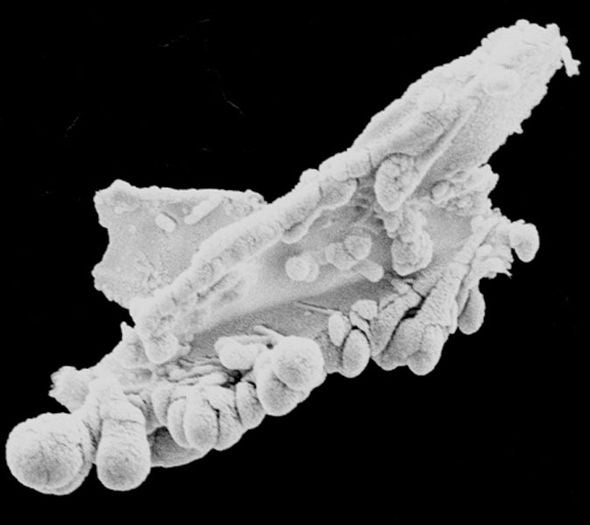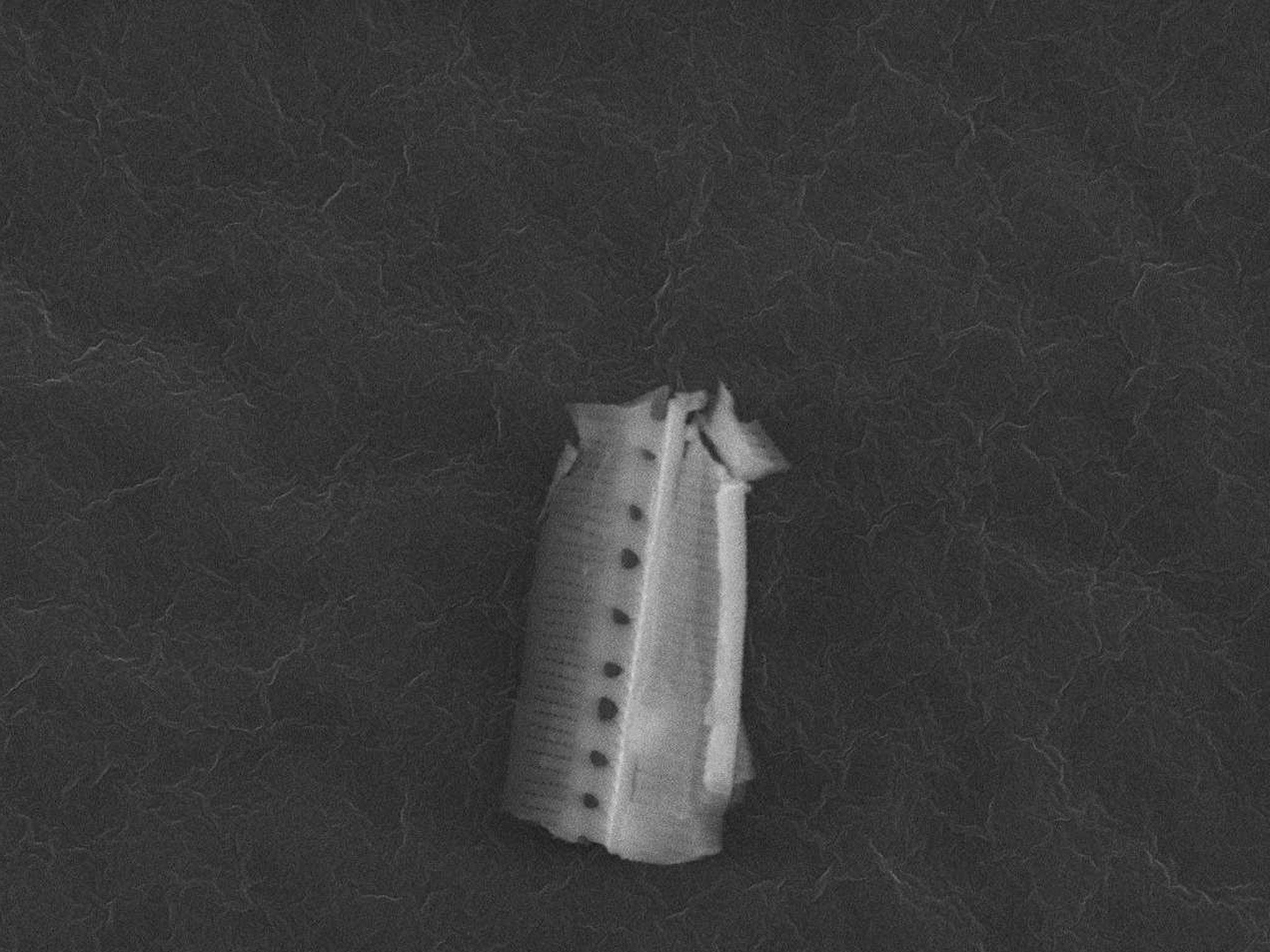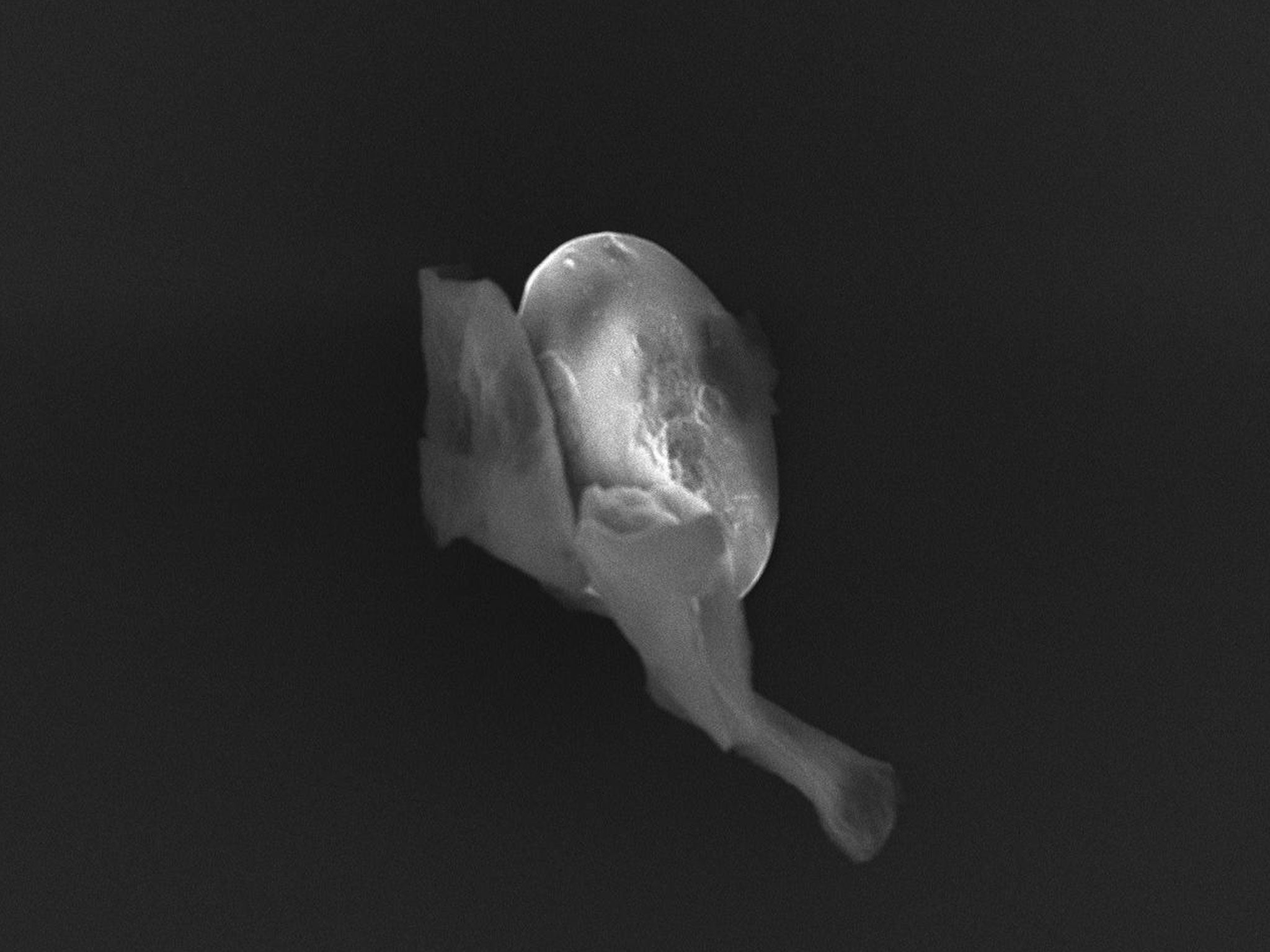'Alien life found above Derbyshire proves we're descended from extraterrestrials', say scientists
Researchers claim to have discovered particulate matter in the Earth's stratosphere that proves conclusively the existence of extraterrestrial life

Your support helps us to tell the story
From reproductive rights to climate change to Big Tech, The Independent is on the ground when the story is developing. Whether it's investigating the financials of Elon Musk's pro-Trump PAC or producing our latest documentary, 'The A Word', which shines a light on the American women fighting for reproductive rights, we know how important it is to parse out the facts from the messaging.
At such a critical moment in US history, we need reporters on the ground. Your donation allows us to keep sending journalists to speak to both sides of the story.
The Independent is trusted by Americans across the entire political spectrum. And unlike many other quality news outlets, we choose not to lock Americans out of our reporting and analysis with paywalls. We believe quality journalism should be available to everyone, paid for by those who can afford it.
Your support makes all the difference.The truth about alien life isn't just out there, it's continuously raining down on us, and could possibly explain the origins of all human life.
That's according to researchers at the University of Sheffield, and the University of Buckingham Centre for Astrobiology, who claim this picture of particulate matter in the Earth's stratosphere is the long awaited proof of extraterrestrial life.
Not content with solving one of the universe's greatest mysteries, however, the researchers also claim that their findings explain the origins of humanity and reveal that all life on earth originally came from space.
Professor Milton Wainwright and his team made the discovery after launching a balloon high into the stratosphere during the Perseid meteor shower last year.
The balloon was launched 27 km into the earth's atmosphere and was equipped with sterile slides designed to capture tiny biological organisms.
During the trip one of the slides caught an organism, around 10microns in size, which Wainwright says is a structure 'colloquially called ‘the dragon particle’ which scientific analysis shows is made of carbon and oxygen and is therefore not a piece of cosmic or volcanic dust.'
In an interview with the Daily Express, Wainwight explained that it was unclear whether the organism was a single life-form or was made up of a number of smaller microbes.
He was also unequivocal that the biological entity was "like nothing found on earth".
"What is amazing is that these organisms appear on the sampling stubs in an absolutely pristine condition," he told the paper.
“There is no pollen, grass or pollution particles found with them, or for that matter soil or volcanic dust."
“Unless a means of lifting them from Earth exists which selectively sieves them out from other Earth-derived debris then they must be incoming from space.
“This, plus the fact that some of the biological material samples by the team produce impact craters when they hit the sampler, confirms their space origin.”

However claims from Professor Milton Wainwright have attracted criticism from the scientific community. One astrobiologist told Space.com "The jump to the conclusion that it is alien life is a big jump and would require quite extraordinary proof. (The usual Sagan saying: extraordinary claims require extraordinary evidence.)"
He went on to tell the site that Wainwright would need to show that the organism was composed of all D amino acids instead of L amino acids, that is, some kind of proof that the debris did not contain the same biochemistry as Earth objects.
Additionally the Journal of Cosmology has had its reputation called into question more than once by other members of the scientific community.
However Professor Wainwright's findings may chime with others. His assertions come mere weeks after Russian scientists claimed to have discovered traces of marine life living on the exterior of the International Space Station (ISS).
Vladimir Solovyev, the official in charge of Russia’s ISS segment, told the news agency Itar-Tass that tiny plankton and microscopic organisms had been discovered on the spacecraft's exterior, describing the finds as “absolutely unique".
The discovery of organisms on the ISS was the first time complex organisms have been discovered in outer space, and many believe the discovery validates the theory that all life on earth originated from space.
This is not the first time Wainwright has made extraordinary claims. Last year he told The Independent that he was "95 per cent convinced" that the organisms found on slides sent into space did not originate from earth.
"By all known information that science has, we know that they must be coming in from space," he said. "There is no known mechanism by which these life forms can achieve that height. As far as we can tell from known physics, they must be incoming."
Some of the samples were captured covered with cosmic dust, adding further credence to the idea that they have originated from space.
"The organisms are not usual," said Professor Wainwright, who works at the University of Sheffield’s Department of Molecular Biology and Biotechnology. "If they came from earth, we would expect to see stuff that we find on earth commonly, like pollen."
"We're very, very confident that these are biological entities originating from space," he said, acknowledging that absolutely certainty is hard to achieve in science.

The team believes that the entities are coming from comets.
"The particles are very clean," added Prof Wainwright. "They don't have any dust attached to them, which again suggests they're not coming to earth."
"Similarly, cosmic dust isn't stuck to them, so we think they came from an aquatic environment, and the most obvious aquatic environment in space is a comet."
Subscribe to Independent Premium to bookmark this article
Want to bookmark your favourite articles and stories to read or reference later? Start your Independent Premium subscription today.
Join our commenting forum
Join thought-provoking conversations, follow other Independent readers and see their replies
Comments